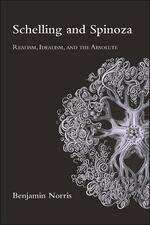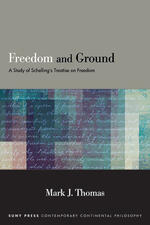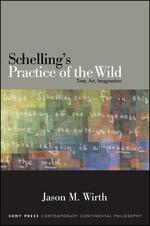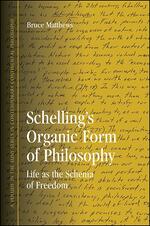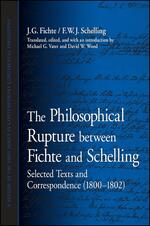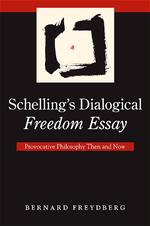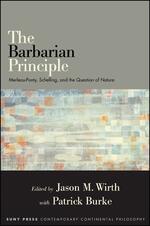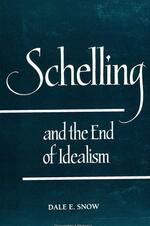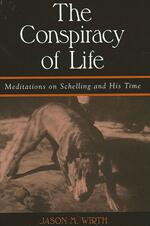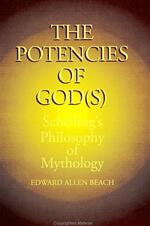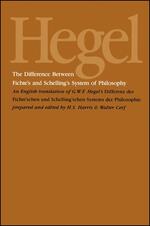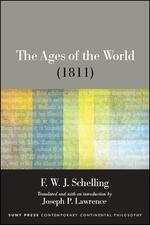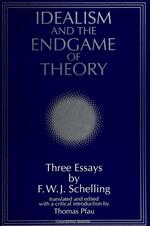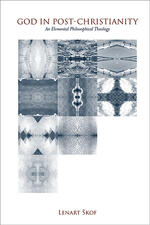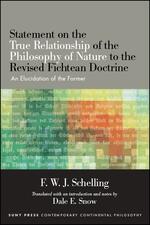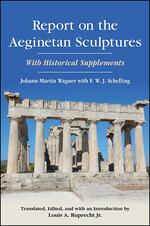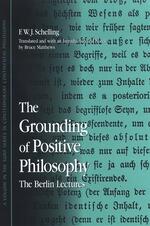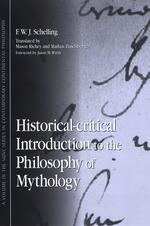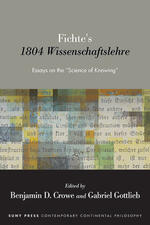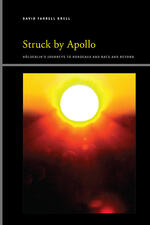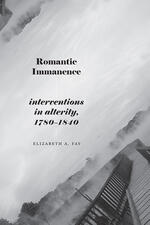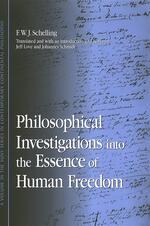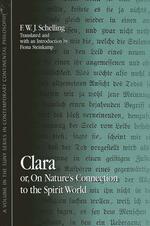Search results for "schelling"
Schelling and Spinoza
Presents a novel interpretation of Schelling's philosophy by way of his reading and critique of Spinoza.
Freedom and Ground
A new interpretation of Schelling's 1809 treatise on freedom, demonstrating how the work is an answer to the problem of ground.
Schelling's Practice of the Wild
Reconsiders the contemporary relevance of Schelling’s radical philosophical and religious ecology.
Schelling's Organic Form of Philosophy
Locates in Schelling a new understanding of our relation to nature in philosophy.
The Philosophical Rupture between Fichte and Schelling
Correspondence and texts by Fichte and Schelling illuminate their thought and the trajectory of their philosophical falling out.
Schelling's Dialogical Freedom Essay
Explores Schelling’s Essay on Human Freedom, focusing on the themes of freedom, evil, and love, and the relationship between his ideas and those of Plato and Kant.
The Barbarian Principle
Essays exploring a rich intersection between phenomenology and idealism with contemporary relevance.
Schelling and the End of Idealism
This comprehensive, general introduction to Schelling's philosophy shows that it was Schelling who set the agenda for German idealism and defined the term of its characteristic problems.
The Conspiracy of Life
Puts Schelling in conversation with twentieth-century continental philosophy.
The Potencies of God(s)
Explores the metaphysical, epistemological, and hermeneutical theories of Schelling’s final system concerning the nature and meaning of religious mythology.
The Difference Between Fichte's and Schelling's System of Philosophy
In this essay, Hegel attempted to show how Fichte’s Science of Knowledge was an advance from the position of Kant in the Critique of Pure Reason, and how Schelling (and incidentally Hegel himself) had made a further advance from the position of Fichte.
The Ages of the World (1811)
The first English translation of the first of three versions of this unfinished work by Schelling.
Idealism and the Endgame of Theory
Three seminal philosophical texts by F. W. J. Schelling, arguably the most complex representations of German Idealism, are clearly presented here for the first time in English.
God in Post-Christianity
Argues for a new elemental and sensory experience of God.
Statement on the True Relationship of the Philosophy of Nature to the Revised Fichtean Doctrine
Schelling's 1806 polemic against Fichte, and his last major work on the philosophy of nature.
Report on the Aeginetan Sculptures
Tells the story of Bavaria’s acquisition of ancient Greek sculptures that rivaled those acquired by England from the Parthenon.
The Grounding of Positive Philosophy
The first English translation of Schelling’s final “existential system.”
Historical-critical Introduction to the Philosophy of Mythology
Appearing in English for the first time, Schelling’s 1842 lectures develop the idea that many philosophical concepts are born of religious-mythological notions.
Fichte's 1804 Wissenschaftslehre
Illuminating new essays on Fichte's 1804 Wissenschaftslehre, or The Science of Knowing.
Struck by Apollo
Retraces Hölderlin's journeys to Bordeaux and back in 1801–02, explaining why they are turning points in the great poet's life.
Romantic Immanence
Offers a new, Spinozist framework for understanding encounters with otherness in Romantic literature as experiences of immanence.
Philosophical Investigations into the Essence of Human Freedom
Schelling’s masterpiece investigating evil and freedom.
Clara
Part novella, part philosophy, Clara was Schelling's most popular work during his lifetime, and appears here in English for the first time.
